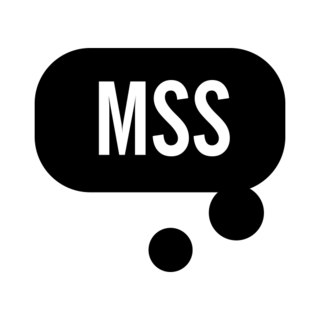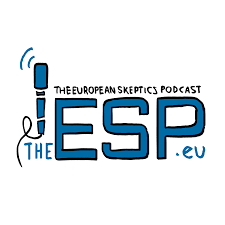
The Skeptic's Dictionary is a collection of cross-referenced skeptical essays by Robert Todd Carroll, published on his website skepdic.com and in a printed book. The skepdic.com site was launched in 1994 and the book was published in 2003 with nearly 400 entries. As of January 2011 the website has over 700 entries. A comprehensive single-volume guides to skeptical information on pseudoscientific, paranormal, and occult topics, the bibliography contains some seven hundred references for more detailed information. According to the back cover of the book, the on-line version receives approximately 500,000 hits per month.

The Committee for Skeptical Inquiry (CSI), formerly known as the Committee for the Scientific Investigation of Claims of the Paranormal (CSICOP), is a program within the U.S. non-profit organization Center for Inquiry (CFI), which seeks to "promote scientific inquiry, critical investigation, and the use of reason in examining controversial and extraordinary claims." Paul Kurtz proposed the establishment of CSICOP in 1976 as an independent non-profit organization, to counter what he regarded as an uncritical acceptance of, and support for, paranormal claims by both the media and society in general. Its philosophical position is one of scientific skepticism. CSI's fellows have included notable scientists, Nobel laureates, philosophers, psychologists, educators, and authors. It is headquartered in Amherst, New York.
Skeptical Inquirer is a bimonthly American general-audience magazine published by the Committee for Skeptical Inquiry (CSI) with the subtitle: The Magazine for Science and Reason.
Scientific skepticism or rational skepticism, sometimes referred to as skeptical inquiry, is a position in which one questions the veracity of claims lacking empirical evidence. In practice, the term most commonly references the examination of claims and theories that appear to be beyond mainstream science, rather than the routine discussions and challenges among scientists. Scientific skepticism differs from philosophical skepticism, which questions humans' ability to claim any knowledge about the nature of the world and how they perceive it, and the similar but distinct methodological skepticism, which is a systematic process of being skeptical about the truth of one's beliefs.

Ray Hyman is a Professor Emeritus of Psychology at the University of Oregon in Eugene, Oregon, and a noted critic of parapsychology. Hyman, along with James Randi, Martin Gardner and Paul Kurtz, is one of the founders of the modern skeptical movement. He is the founder and leader of the Skeptic's Toolbox. Hyman serves on the Executive Council for the Committee for Skeptical Inquiry.
A debunker is a person or organization that exposes or discredits claims believed to be false, exaggerated, or pretentious. The term is often associated with skeptical investigation of controversial topics such as UFOs, claimed paranormal phenomena, cryptids, conspiracy theories, alternative medicine, religion, or exploratory or fringe areas of scientific or pseudoscientific research.

Robert Todd Carroll was an American author, philosopher and academic, best known for The Skeptic's Dictionary. He described himself as a naturalist, an atheist, a materialist, a metaphysical libertarian, and a positivist. In 2010 he was elected a fellow of the Committee for Skeptical Inquiry. He was a professor of philosophy at Sacramento City College from 1977 until his retirement in 2007.

The Amazing Meeting (TAM), stylized as The Amaz!ng Meeting, was an annual conference that focused on science, skepticism, and critical thinking; it was held for twelve years. The conference started in 2003 and was sponsored by the James Randi Educational Foundation (JREF). Perennial speakers included Penn & Teller, Phil Plait, Michael Shermer and James "The Amazing" Randi. Speakers at the four-day conference were selected from a variety of disciplines including scientific educators, magicians, and community activists. Outside the plenary sessions the conference included workshops, additional panel discussions, music and magic performances and live taping of podcasts including The Skeptics' Guide to the Universe. The final Amazing Meeting was held in July 2015.

Ghost hunting is the process of investigating locations that are purportedly haunted by ghosts. Typically, a ghost-hunting team will attempt to collect evidence supporting the existence of paranormal activity.
The New England Skeptical Society (NESS) is an American organization dedicated to promoting science and reason. It was founded in January 1996 as the Connecticut Skeptical Society, by Steven Novella, Perry DeAngelis and Bob Novella. The group later joined with the Skeptical Inquirers of New England (SINE) and the New Hampshire Skeptical Resource to form the New England Skeptical Society. The society publishes The Skeptics' Guide to the Universe, a science and scepticism podcast.

Benjamin Radford is an American writer, investigator, and skeptic. He has authored, coauthored or contributed to over twenty books and written over a thousand articles and columns on a wide variety of topics including urban legends, unexplained mysteries, the paranormal, critical thinking, mass hysteria, and media literacy. His book, Mysterious New Mexico: Miracles, Magic, and Monsters in the Land of Enchantment, was published in the summer of 2014 and is a scientific investigation of famous legends and folklore in the state of New Mexico. In 2016 Radford published Bad Clowns, a 2017 IPPY bronze award winner, and he is regarded as an expert on the bad clowns phenomenon.

Brian Andrew Dunning is an American writer and producer who focuses on science and skepticism. He has hosted a weekly podcast, Skeptoid, since 2006, and he is an author of a series of books on the subject of scientific skepticism, some of which are based on the podcast. Skeptoid has been the recipient of several podcast awards such as the Parsec Award. Dunning has also created the Skeptoid.org spin-off video series, inFact, and The Feeding Tube both available on YouTube.

Kylie Sturgess is a past President of the Atheist Foundation of Australia, an award-winning blogger, author and independent podcast host of The Token Skeptic Podcast. A Philosophy and Religious Education teacher with over ten years experience in education, Sturgess has lectured on teaching critical thinking, feminism, new media and anomalistic beliefs worldwide. She is a Member of the James Randi Educational Foundation (JREF) Education Advisory Panel and regularly writes editorial for numerous publications, and has spoken at The Amazing Meeting Las Vegas, Dragon*Con (US), QED Con (UK). She was a presenter and Master of Ceremonies for the 2010 Global Atheist Convention and returned to the role in 2012. Her most recent book The Scope of Skepticism was released in 2012. She is a presenter at Perth's community radio station RTRFM, and a winner at the 2018 CBAA Community Radio Awards in the category of Talks, with the show Talk the Talk In 2020 she was in the final eight in the Three-Minute Thesis (3MT) Asia-Pacific virtual showcase.

Desiree Schell is the host of the live Canadian call-in radio talk show and podcast, "Science for the People". An advocate for scientific skepticism, Schell is a strong advocate of critical thinking and is strongly interested in the promotion of skepticism publicly. In her work as a labour organizer Schell creates curricula and teaches courses on effective activism, drawing on the experience of other social movements.

The Young Australian Skeptics (YAS) is an Australian skeptical organisation whose primary focus is its collaborative blog, which attempts to address topics central to science, critical thinking and scientific skepticism. The group has published a Skeptical Blog Anthology Book reviewed in Scientific American, and has been represented in national broadcast media in Australia and North America, skeptically addressing conspiracy theories, as well as discussing topics specific to young members of the skeptical movement.

The Merseyside Skeptics Society (MSS) is a nonprofit organisation that promotes scientific scepticism in Merseyside and the United Kingdom. Founded in 2009, the society has campaigned against the use of homeopathy, challenged the claims of psychics, and hosts regular events in Liverpool, podcasts, and an annual conference in Manchester, QED: Question. Explore. Discover.

Paranormality: Why we see what isn't there is a 2011 book about the paranormal by psychologist and magician Richard Wiseman. Wiseman argues that paranormal phenomena such as psychics, telepathy, ghosts, out-of-body experiences, prophesy and more do not exist, and explores why people continue to believe, and what that tells us about human behavior and the way the brain functions. Wiseman uses QR codes throughout the book, which link to YouTube videos as examples and as experiments the reader can participate in to further explain the phenomena. Because of a cautious American publishing market, it was only available in America through Kindle. Paranormality was awarded the Center for Inquiry's Robert P. Balles award for 2011.

The European Skeptics Podcast (TheESP) is a weekly podcast recorded in English and hosted by three skeptics from several different European countries: András Gábor Pintér from Hungary, Pontus Böckman from Sweden and Annika Harrison from Germany who joined the team in July 2020. The main goal of the podcast is to "support European level actions within the skeptical movement and build bridges among skeptics" all over the continent. The show is often jokingly referred to by other podcasters and people interviewed on the show as "the REAL ESP experience" referring to a namesake pseudoscientific concept.














